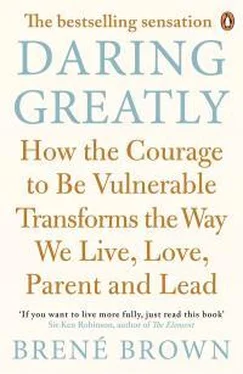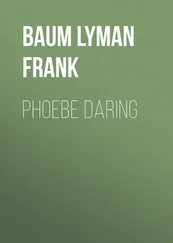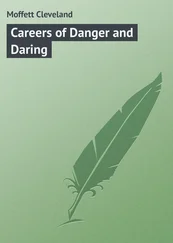Own the story! Don’t bury it and let it fester or define me. I often say this aloud: “If you own this story you get to write the ending. If you own this story you get to write the ending.” When we bury the story we forever stay the subject of the story. If we own the story we get to narrate the ending. As Carl Jung said, “I am not what has happened to me. I am what I choose to become.”
Even though I knew that the most dangerous thing to do after a shaming experience is to hide or bury our story, I was afraid to make the call. But I did.
I called both my husband, Steve, and my good friend Karen. They gave me what I needed the most: empathy, the best reminder that we’re not alone. Rather than judgment (which exacerbates shame), empathy conveys a simple acknowledgment, “You’re not alone.”
Empathy is connection; it’s a ladder out of the shame hole. Not only did Steve and Karen help me climb out by listening and loving me, but they made themselves vulnerable by sharing that they, too, had spent some time in the same hole. Empathy doesn’t require that we have the exact same experiences as the person sharing their story with us. Neither Karen nor Steve had sent an e-mail like that, but they were both intimately familiar with the imposter gremlins and the “getting caught” feeling and the “Oh, shit!” experience. Empathy is connecting with the emotion that someone is experiencing, not the event or the circumstance. Shame dissipated the minute I realized that I wasn’t alone—that my experience was human.
Interestingly, Steve and Karen’s responses were totally different. Steve was more serious and more “Oh, man. I know that feeling!” Karen took an approach that had me laughing in about thirty seconds. What the responses shared in common was the power of “me too.” Empathy is a strange and powerful thing. There is no script. There is no right way or wrong way to do it. It’s simply listening, holding space, withholding judgment, emotionally connecting, and communicating that incredibly healing message of “You’re not alone.”
My conversations with Steve and Karen allowed me to move through shame, get back on my emotional feet, and respond to the man’s “I knew it!” e-mail from a place of authenticity and self-worth. I owned my part in the angry exchange and apologized for my inappropriate language. I also set clear boundaries around future communications. I never heard from him again.
Shame thrives on secret keeping, and when it comes to secrets, there’s some serious science behind the twelve-step program saying, “You’re only as sick as your secrets.” In a pioneering study, psychologist and University of Texas professor James Pennebaker and his colleagues studied what happened when trauma survivors—specifically rape and incest survivors—kept their experiences secret. The research team found that the act of not discussing a traumatic event or confiding it to another person could be more damaging than the actual event. Conversely, when people shared their stories and experiences, their physical health improved, their doctor’s visits decreased, and they showed significant decreases in their stress hormones.
Since his early work on the effects of secret keeping, Pennebaker has focused much of his research on the healing power of expressive writing. In his book Writing to Heal , Pennebaker writes, “Since the mid-1980s an increasing number of studies have focused on the value of expressive writing as a way to bring about healing. The evidence is mounting that the act of writing about traumatic experience for as little as fifteen or twenty minutes a day for three or four days can produce measurable changes in physical and mental health. Emotional writing can also affect people’s sleep habits, work efficiency, and how they connect with others.”
Shame resilience is a practice and like Pennebaker, I think writing about our shame experiences is an incredibly powerful component of the practice. It takes time to cultivate that practice and courage to reach out and talk about hard things. If you’re reading this and thinking, I’d like to be able to have these conversations with my partner or my friend or my child —do it! If you’re reading it and thinking, Shame has become a management style around here, and it’s no wonder that folks are disengaged—we should talk about this —do it! You don’t need to figure it out first or master the information before you engage in conversation. You just have to say, “I’ve been reading a book and there’s a chapter about shame. I’d love to talk about it with you. If I lend you my book, will you take a look?”
The next section is about men, women, shame, and worthiness. I think you’ll want to lend them this chapter as well. What I learned about men and shame changed my life.
WEBS AND BOXES: HOW MEN AND WOMEN EXPERIENCE SHAME DIFFERENTLY
For the first four years of my study on shame, I focused solely on women. At that time many researchers believed, and some today still believe, that men and women’s experiences of shame are different. I was concerned that if I combined the data from men and women, I’d miss some of the important nuances of their experiences. That I opted to just interview women, I confess, was partially due to my mind-set that when it came to worthiness, women were the ones struggling. At some level, I also think my resistance was based on an intuitive sense that interviewing men would be like stumbling into a new and strange world.
As it turns out, it was definitely a strange new world—a world of unspoken hurt. I got a glimpse into that world in 2005 at the end of one of my lectures. A tall, thin man who I’d guess was in his early sixties followed his wife to the front of the room. He was wearing a yellow Izod golf sweater—an image I’ll never forget. I spoke with his wife for a few minutes as I signed a stack of books that she’d bought for herself and her daughters. As she started to walk away, her husband turned to her and said, “I’ll be right there—give me a minute.”
She clearly didn’t want him to stay and talk to me. She tried coaxing him with a couple of “C’mons,” but he didn’t budge. I, of course, was thinking, Go with her, dude. You’re scaring me. After a few unsuccessful attempts, she walked toward the back of the room, and he turned to face me at my book-signing table.
It started innocently enough. “I like what you have to say about shame,” he told me. “It’s interesting.”
I thanked him and waited—I could tell there was more coming.
He leaned in closer and asked, “I’m curious. What about men and shame? What have you learned about us?”
I felt instant relief. This wasn’t going to take long because I didn’t know much. I explained, “I haven’t done many interviews with men. I just study women.”
He nodded and said, “Well. That’s convenient.”
I felt the hair on the back of my neck stand up in defense. I forced a smile and asked, “Why convenient?” in the very high voice that I use when I’m uncomfortable. He replied by asking me if I really wanted to know. I told him yes, which was a half-truth. I was on my guard.
Then his eyes welled up with tears. He said, “We have shame. Deep shame. But when we reach out and share our stories, we get the emotional shit beat out of us.” I struggled to maintain eye contact with him. His raw pain had touched me, but I was still trying to protect myself. Just as I was about to make a comment about how hard men are on each other, he said, “Before you say anything about those mean coaches, bosses, brothers, and fathers being the only ones …” He pointed toward the back of the room where his wife was standing and said, “My wife and daughters—the ones you signed all of those books for—they’d rather see me die on top of my white horse than watch me fall off. You say you want us to be vulnerable and real, but c’mon. You can’t stand it. It makes you sick to see us like that.”
Читать дальше






![Брене Браун - Вопреки. Как оставаться собой, когда всё против тебя [litres]](/books/436389/brene-braun-vopreki-kak-ostavatsya-soboj-kogda-v-thumb.webp)





